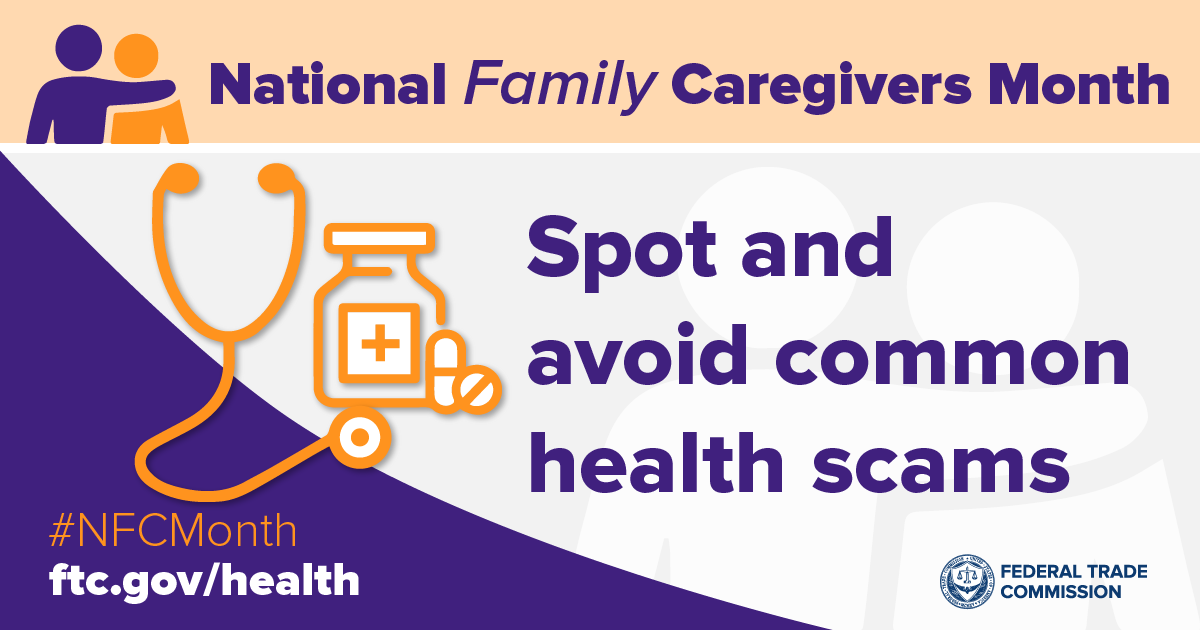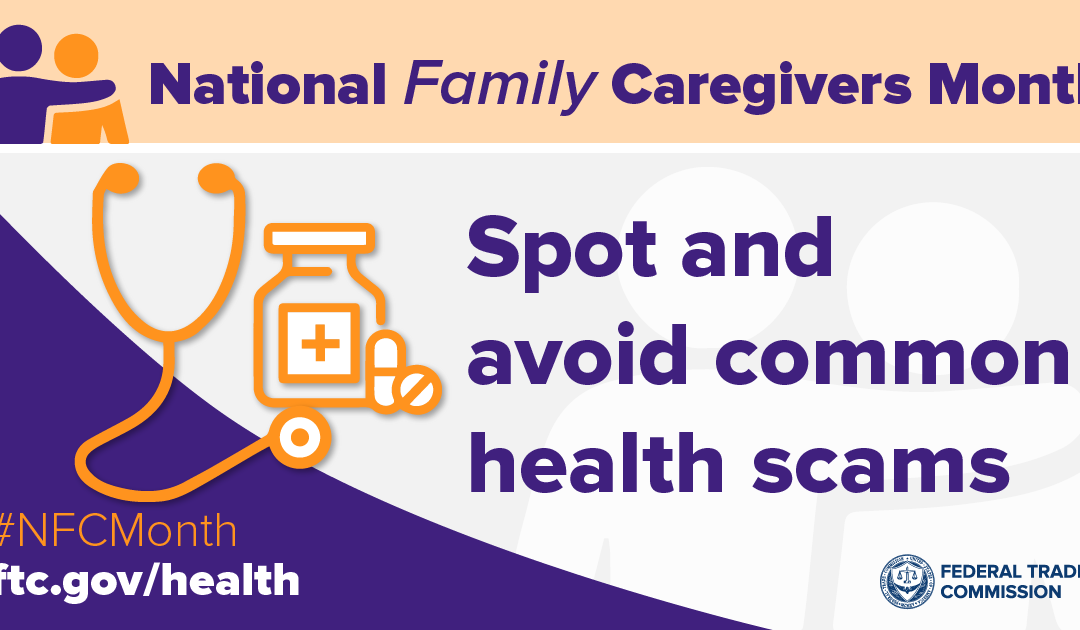This article was originally posted by the FTC. See the original article here.
 As a caregiver for a family member with special health needs, you know that shopping, making meals, or just regularly spending time with someone who can’t get out much can profoundly improve their quality of life.
As a caregiver for a family member with special health needs, you know that shopping, making meals, or just regularly spending time with someone who can’t get out much can profoundly improve their quality of life.
But being a caregiver is stressful, and scammers know that, too. In fact, dishonest companies will say almost anything to get you to buy their product or service. So, as part of National Family Caregiver’s month, here are steps to take before you buy any health product or service — for yourself or someone else.
- Do some research. Search for the name of the treatment or product online, plus the words “review,” “complaint,” or “scam.”
- Ask a health professional first. Find out:
- Does this product or treatment actually work?
- What’s the scientific evidence?
- How will it interact with other supplements or drugs the person you’re caring for takes?
- Be skeptical about products that come with guarantees or promises. Some companies want to take advantage of your hope.
- Know that “natural” doesn’t mean either safe or effective. In fact, “natural” can be both harmful and ineffective. And some “natural” products might interfere with proven treatments recommended by a doctor.
- Evaluate the claims. Ads must be truthful, not misleading. But remember, you are the best defense against health scams. Don’t assume that some government agency has approved a claim just because you see it in an ad.
- Know that the government wouldn’t hide proven remedies from you. If an ad offers a treatment that the seller claims the government or pharmaceutical industry doesn’t want you to know about, it’s a scam.
If you think you’ve spotted a health scam, tell your friends and family about it. Then tell the FTC at ReportFraud.ftc.gov. Your reports help the FTC and our law enforcement partners build cases and stop scammers.
Brought to you by Dr. Ware, Microsoft Office 365 Silver Partner, Charleston SC.



Recent Comments